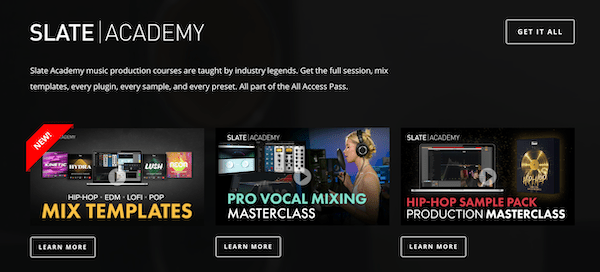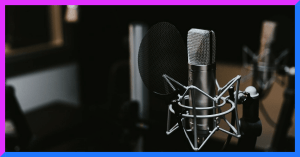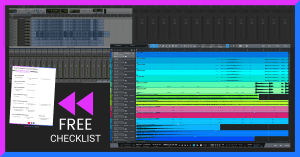
How To Know When A Mix Is Finished
Starting out as a young mixer is tough. The learning curve is steep, and especially in the beginning, it’s difficult to know where the finish line is. These 5 tips will help you decide if your mix is finished.
One incredible benefit the internet has brought us is that information is abundantly available to all of us at any time. If you decide to improve your mixing skills, you can just go online and get to work. There are countless resources that help you with your quest of becoming a better mix engineer. However, with all the choices you have, it can be difficult or even overwhelming to know where to go and which source of information to pull from. In this article you’ll find some guidance that you can use to improve your mixing skills while not being paralyzed by all the available options.
There’s one development in the last decade or so that can make it hard for you to actually move forward and constantly get better at mixing. It’s the fact that everybody can spread information whenever they want to. Have you ever noticed that when you watch a new tutorial on YouTube, within a week or two, many other YouTubers create a video on the same topic, with roughly the same information.
Everybody is re-packaging the same old information, because everyone is just checking out what the other influencers do. Most of them don’t take the time and actually learn from someone outside their peer group or “influencer circle”. Sometimes, you might hear a mixing tip frequently because everybody is covering it, NOT necessarily because it’s true. If you follow the tips in this article, you’ll know what to look for and how to look for it. So, let’s dive right in.
Since we’ve already touched on the YouTube topic, let’s briefly address the question how to actually use YouTube to improve your mixing skills. The first very important point is that you should ALWAYS take information from YouTube channels with a grain of salt. A channel having 500.000 subscribers doesn’t mean their information is good. It just means they are great at marketing their YouTube channel.
On the other hand, watching channels and videos by renowned industry professionals with actual credits and skills (which you can find on databases like allmusic.com or genius.com) is a very good idea. It doesn’t matter at all how big the channels are or how many views a video has. It’s important to learn from the right people. That’s what you should focus on when using YouTube to become a better mix engineer.
Here are some YouTube channels where you can find really great information:
With online courses it’s the same as with free YouTube tutorials: it’s important who you learn from, not how great those people are at marketing (unless you want to learn marketing!). There are amazing courses out there, and the benefit of these paid courses is that they usually tackle one topic or one problem top to bottom – at least if they are good courses. It’s a great way to improve your mixing skills effectively since you don’t have to piece together information from 30 different sources. Instead, you can just pay $69 for the “Ultimate Reverb Course” or something like that.
I’ve used a bunch of paid courses to speed up my skill-building a few years ago. It certainly helped me a lot with getting a better grasp on certain topics within the big picture of mixing. Here are a couple sources where you can find courses (I haven’t bought courses from all of them, so do your own research!):

This is the more old-school brother of learning from online videos. However, if you’re like me, then reading might actually help you remember things a lot better than watching a fast-paced video. If you like checking out music production blogs, you can find a whole lot of valuable information and very specific knowledge in there. As with all the previous points, it’s important to learn from the right sources. If you can get information from someone with real credits and a track record, then you’re on to something!
Some great blogs to improve your mixing skills include:
While the whole world is focused on online solutions for every aspect of daily life, there’s tremendous value in learning a skill through live in-person interaction. My biggest breakthroughs in mixing happened when I actually was able to look a true master over the shoulder for hours, just watching what he was doing. Funny side note: This master was Ken Lewis, founder of Mixing Night Audio.
It might not be as easy to facilitate as pulling up a YouTube video is, but therefore it’s 100x more effective. For me, it made the difference between being stuck at 80% and getting lifted up all the way to the pro level. From my experience, there’s just one point in your education where you can’t quite take the next steps on your own anymore. That’s because none of the usual internet sources cover all these between-the-lines situations, thought processes and strategies. At that point, you just have to ask someone who actually is a master at the craft of mixing music.
This one might be not as obvious when it comes to improving your mixing skills. However, it’s amazing how much you can learn from like-minded people who have the same drive as you. They don’t need to be great at everything, but you can pick up so many small tricks and add them to your toolbox from watching friends and fellow producers work.
This is not necessarily a tip for the very early stages, unless you have someone who’s willing to guide you from the start. In any case, you should have some foundational knowledge so you can take the tips and tricks you’re picking up from others and add them to your existing knowledge. Don’t build the foundation from scattered knowledge that you pick up from ten different people, but use this approach later on your journey to collect more and more tools for your personal mixing toolkit.
This question is for another day. There are many ways to meet fellow producers and mixers, both in the online and offline world. To get you started, the Mixing Night Audio Discord channel is full with great supportive people with a lot of drive. Why don’t you get the process going and join us there?
Alright, hopefully these ideas have inspired you to work on your craft. It’s important to reignite the fire every once in a while, cause learning can be frustrating at times. In the long run, however, it’s always rewarding. One thing you’ll have forever is the collection of skills you’ve learned and practiced. Keep working on these invaluable assets whenever you get the chance, and you’ll see it pay off down the road!

Starting out as a young mixer is tough. The learning curve is steep, and especially in the beginning, it’s difficult to know where the finish line is. These 5 tips will help you decide if your mix is finished.

How do you effectively and musically remove harsh vocal frequencies from your tracks? Here are some tips for you that you can use in order to solve this problem and get better vocal mixes right away!

Working with a clean mix session is the foundation for a great workflow in mixing. Find out how you can prepare your mix session in 7 easy steps.
Please type in your new password (minimum 9 characters, at least 1 special character).
We’ll send you a code for the next step.